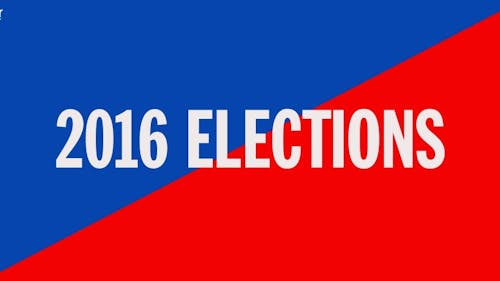The N.J. ballot questions you'll see on Election Day

Two statewide measures regarding casinos in New Jersey and the recent gas tax increase will both appear on the ballot on Nov. 8.
Question one would authorize two new casinos in northern New Jersey and question two would dedicate all revenue from the gas tax to transportation projects, according to ballotpedia.org.
New Jersey state law prohibits initiatives or referendums, so all decisions are referred to the ballot by the New Jersey Legislature, according to ballotpedia.org.
New Jersey has specific requirements for proposed amendments.
Amendments must be approved by a simple majority of voters for it to pass. If an amendment is rejected, the same or a similar amendment can only go back on the ballot after at least three elections, according to ballotpedia.org.
Since 1996, 92 percent of measures that appeared on statewide ballots were approved and only 3 of 36 were defeated.
But at Rutgers, many disapprove of the amendments.
Even supporters of question one do not believe it will pass, said Ross Baker, a distinguished professor in the Department of Political Science.
“It has been the victim of an extremely effective barrage of TV ads aimed at older voters,” he said. “Add to that, the poor success record of Atlantic City casinos is so well known that New Jerseyans are rightly suspicious that new ones will be any more successful than the ones in South Jersey.”
The competition from New Jersey’s surrounding states is too powerful, he said.
New Jersey voters should reject the first ballot question, said Eric Davis, a professor in the Department of Political Science.
Many analysts believe North Jersey casinos would not benefit the state, he said. It would only cause congestion and crime in northern New Jersey.
Others believe casino gambling should be confined to Atlantic City, which requires additional financial support from the state of New Jersey because it is a poor and urban area, he said,
“Analysts have argued that Proposition 1 will only help a small number of investors and will not provide any meaningful revenues to senior citizens, New Jersey farms or the state as a whole,” he said.
Felix Ades, a School of Arts and Sciences senior, is against North Jersey casinos and argues it is unnecessary.
“We do not need to expand gambling,” he said. “If people want to gamble, they can go online or to Atlantic City."
But Baruch Silberstein, a School of Arts and Sciences junior, said although he has some issues with the first ballot question, he is ultimately in favor of the idea.
Opening two new casinos can help generate revenue for New Jersey, but not specifying where exactly these casinos will be built is “absurd,” he said.
“The state cannot ask you to approve a building and not tell you where they are putting it,” he said. “I would not pay for someone to build me a house unless I know where it will be built prior to agreement.”
Still, Davis said New Jersey voters should support the second proposition.
“Proposition 2 is essential to improve the neglected public transportation system, as the recent crash of the New Jersey Transit train in Hoboken demonstrated,” he said.
Gov. Chris Christie (R-NJ) has avoided replenishing the state Transportation Trust Fund, he said. This resulted in potholes on New Jersey highways, closed bridges due to lack of repairs and public transportation lacking safety measures.
Positive Train Control (PTC) automatically slows down a train that is traveling above the prescribed speed in a specific zone, Davis said. The state delayed installing it due to lack of funding.
If PTC had been installed on NJ Transit trains, many say the Hoboken crash would not have occurred, Davis said.
“In other words, the train would have automatically been slowed down as it entered the station, as it was it was traveling at 21 miles per hour when the speed limit was 10 miles per hour,” he said.
The second ballot question makes fuel tax a "dedicated tax" that cannot be diverted to the general fund in New Jersey, and dedicated taxes cannot be used to enhance general state revenues, Baker said.
It has caused a split between Christie and his Lieutenant Gov. Kim Guadagno (R-NJ). If defeated, funds could be redirected from infrastructure to higher education, he said.
Having the money gained from the 23 cent gas tax directed toward transportation related projects is no problem, Silberstein said.
But Silberstein said before New Jersey should send more money toward transportation, it should fix the problems with the current system.
“For example, New Jersey spends $2 million to fix a quarter mile of road. That is 12 times the United States national average,” he said. “That being said, unless New Jersey can fix the way they spend the money, I believe more money will just increase the unnecessary and unreasonable spending.”
Ades disapproves of the second initiative. He believes the money from the pre-increase tax should be subsidizing roadwork, rather than additional taxpayer money.
This article is part of The Daily Targum's 2016 election coverage. For a full list of articles, click here.
The Eagleton Institute of Politics has released a full list of candidates running in New Jersey municipalities. Click here for more.
Noa Halff is a School of Arts and Sciences junior majoring in journalism and media studies. She is an associate news editor for The Daily Targum.



